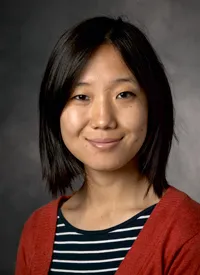
Pema Tshomo

I started my MA program in International Comparative Education in Stanford with nothing but hope and expectations. I left the ICE program with not only all my hope and expectations fulfilled but also with skills and knowledge that I am certain will help me contribute towards the improvement of the Bhutanese education sector. I also left the ICE program with a renewed sense of purpose and commitment towards education.
After graduation, I returned to Bhutan and started working as a researcher in the Royal Academy Project, where I had worked for a year before leaving for Stanford to pursue my masters in International Comparative Education. Upon my return, I was immediately able to recognize how much the ICE program had enhanced my research, writing, and analytical skills. The skills and knowledge I gained through the ICE program helped me understand and critically examine reports compiled for the project by renowned international consultancy firms. I also realized that while the ICE program appears to have an academic focus, it equips you with the necessary skills required to pursue a professional career outside of academia as well. After completing my program, I returned to my previous job as a researcher with more confidence and a clearer sense of direction.
Prior to the ICE program, I worked in the Bhutanese education sector for approximately four years. I realized during this period that there was a dearth of research in Bhutan. While the education sector was probably more familiar with the research culture than other sectors in Bhutan, there was no doubt that it could be improved. This realization is what made the ICE program attractive to me. After completing the program, I am happy to confidently state that the interdisciplinary culture of Stanford tied to the requirements of the ICE program greatly prepared me for my current job, which I hope will allow me to contribute towards the enrichment of the field of educational research in Bhutan.
The ICE program is based on a very cooperative approach; it allows you to pursue your own research interests while writing your MA paper. I wrote my MA paper on the ‘Educating for Gross National Happiness Initiative in Bhutan’— an under-researched topic which I explored through a complex philosophical approach. Despite these challenges, my advisor, program director, TA, and my program cohort provided a supportive learning environment, which enabled me to write about a topic dear to my heart. In addition, I am really grateful to all my professors and my program cohort for helping me learn about theories and research related to educational policies and practices around the world based on their own experiences and through their constant support and guidance.
The ICE program has provided me with the theoretical foundation, research skills, multi-disciplinary training, and critical thinking skills required to pursue my interests in education. It also helped me find meaning and purpose in my interests.
Based on my own experience, I am positive that the ICE program will help all future ICE cohort members find meaning and purpose in their interests and fully equip them to discover their world and pursue their dreams.
"Your work is to discover your world and then with all your heart give yourself to It."
- Buddha
